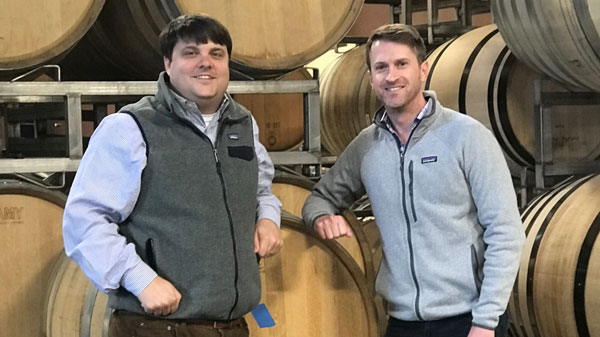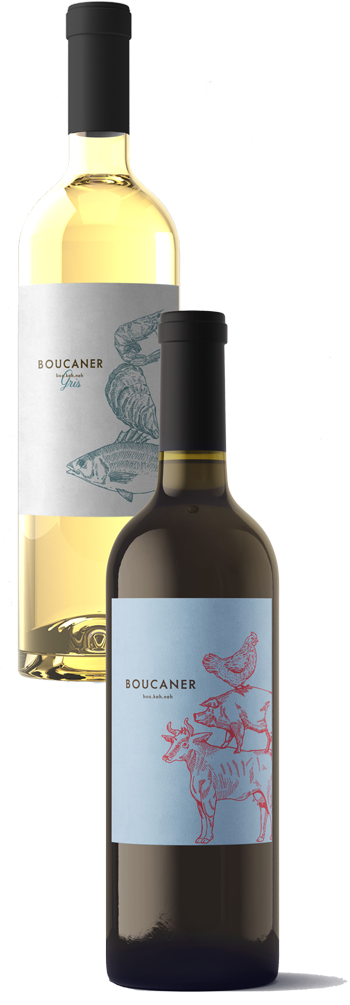
A French-Cajun term for “Smoked Meats”
This medium bodied, garnet colored wine presents dense fruit flavors of ripe blackberries and summer fruit compote upon entry. These flavors give way to vanilla and rich baking spices which lead into the structured and elegant finish. Drink now but would do well over next three years.
We founded Hogs for the Cause in 2009 to help families battling pediatric brain cancer and celebrate the culture of cooking outdoors. This wine is a natural extension of the camaraderie of Hogs for the Cause and the foods we love to eat with our friends and family. Perfect with BBQ ribs, smoked chicken wings, rosemary and garlic coated lamb chops, spicy pastas, and thick steaks basted with butter.
Blend Components
70% 2017 Washington Syrah
Phelps Clone grown in the McNary Vineyard on bluffs overlooking the Columbia River utilizing drip irrigation on north–south planted, south facing slope. Vines planted in 2013.
30% 2018 Oregon Pinot Noir
Dijon 115 Clone from the Lillies Vineyard in the Dundee Hills AVA in the Willamette Valley from a non-irrigated vineyard planted in a north–south orientation on rootstock. Vineyard is basalt soil derived from volcanic activity. Vines planted in 2002.
Vintage Notes
Washington
2017 saw an excellent vintage with a high winter snowfall and a cool spring which gave way to a hot summer and a long fall with perfect harvest conditions.
Oregon
2018 proved to be a good year with solid weather from bud break thru bloom and into growing season. Summer rainfall was less than normal which caused higher than normal brix however acidity and freshness were preserved.
Winemaking
Syrah
Fermented using destemmed, whole berries with juice spending ten days on skins before being lightly pressed to avoid bitterness and promote fresh fruit. Wine was aged on French oak for nine months with micro-oxygenation to aid in tannin formation.
Pinot Noir
Clusters table sorted prior to destemming and dropped directly into fermenter for a three to five day cold soak. Due to higher than average brix at harvest, Assmanhausen yeast aided in preserving ability to ferment at slightly cooler than normal temperature to maximize fruit, freshness, and complexity with 100% malolactic fermentation. Seventeen days of skin contact followed by aging in a blend of new French oak, one year old French oak, and neutral barrels.
Technical Data
pH: 3.65 TA: 6.1 g/L Alc.: 13.9%


